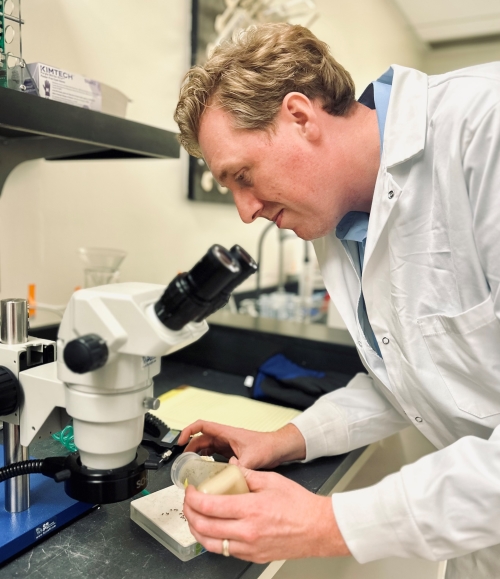Reducing Protein Synthesis in Early Adulthood Extends Lifespan and Healthspan

Andrew Pickering, PhD
The rate at which proteins are synthesized or made is elevated for a brief period during early adulthood in flies, mice and even humans. The researchers found this early-life rise in protein synthesis to be a potent driver of age-related declines in later life. The study performed in Drosophila found that when this early-life increase in protein synthesis is stopped, the flies lived longer and healthier.
The study found that preventing early-life rises in protein synthesis blocked the buildup of protein aggregates in later life and prevented age-related collapses in protein regulation.
This research suggests that lowering protein synthesis after early-adulthood helps manage protein balance, slows down aging-related issues, and extends lifespan, providing insight into how protein production influences the aging processes.
This study was led by Andrew Pickering, PhD, who is an Associate Professor in the Department of Integrative Biology and Pharmacology, and Director of Geroscience in the Institute on Aging. The study is published in Nature Communications.
Read the full article, here.